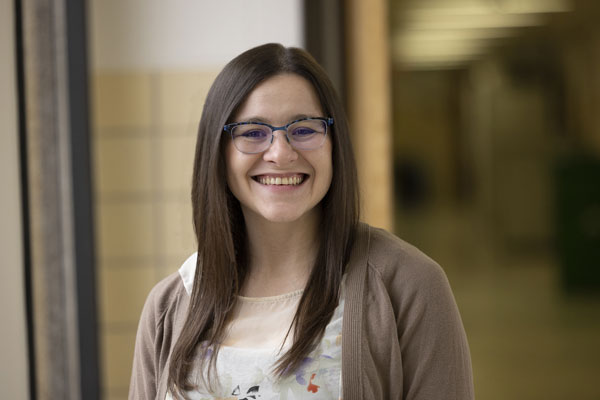Research takes many forms, and what it looks like varies depending on your major and interests. Some examples of research activities include surveys and interviews, data analysis, laboratory benchwork, fieldwork, archive work, modeling/computations, design projects, creative arts compositions, creative writing/poetry, film production and social justice/policy.
- Office of Student Engagement and Experiential Learning
- Research
- Frequently Asked Questions
Undergraduate Research Frequently Asked Questions
General
The time commitment can vary depending on your program or course. It often depends on how much time and help your research advisor is expecting from you and can vary some throughout the semester. Many undergraduates spend around 5-10 hours per week on research activities.
There are many benefits to undergraduate research! While most students are told that it's a great way to meet faculty and get a good recommendation letter, there are many other benefits as well. You can earn credit toward your degree, build technical skills, sharpen your critical-thinking skills, learn how to apply knowledge and methods in real-world situations, attend and present research at national conferences, and become more competitive when applying for awards, graduate school and fellowships.
You bet! All the programs offered through OSEEL compensate and fund student researchers. There are sometimes opportunities for undergraduate researchers to be paid by a faculty mentor through faculty grants. However, to receive an undergraduate research experience, you often only need to find a willing mentor and work out an arrangement with them. Some undergraduates volunteer or conduct research for academic credit.
Getting Started
Start with what you know. Have you taken a course that was really interesting? What are you curious about? Curiosity is what drives research, and a little bit of reflection might help identify an area of interest. Visiting the Office of Student Engagement and Experiential Learning (OSEEL) is also a great first step. Attend one of our Ready. Set. RESEARCH workshops or connect with an undergraduate research ambassador. You can also apply for our Research Rookies program, which would guide you through your first research experience.
You don't need to wait until you're an upper-division student to participate in research. Many lower-division students begin working with faculty mentors by volunteering on a project or participating in the Research Rookies program, which is designed for those without previous research experience.
No experience is required for most undergraduate research positions at NIU. If a position has any prerequisites, they'll be listed on the position announcement. When in doubt, ask the faculty or staff overseeing the program.
Sometimes GPA is considered, but not always. It often depends on the faculty member. Most faculty put a much greater emphasis on your level of interest in the topic, curiosity and personal motivation.
Yes. Your major doesn't limit the type of research you can do. You can do research outside of your major to complement your interests. If a faculty member/lab has prerequisites, they'll likely be listed on the position announcement or their website.
To participate in research at NIU during the academic year, you must be enrolled as an NIU student. There is no university policy that says you must be enrolled full time. If you're part-time student, please set up a meeting with OSEEL staff to talk about your options.
You can get involved with undergraduate research any time throughout a semester, especially if you volunteer. Faculty mentors typically look for students at the beginning of a semester. To participate in programs over the summer or in the fall, you should start the process in the spring semester or earlier. If you want to conduct research in the spring semester, you should start contacting your potential faculty mentor early in the fall semester. Please note: If you want to apply for a funded program, you'll need to have a faculty mentor and research proposal by the application deadline, which depends on the specific program.
Finding a Faculty Mentor
Review the faculty profiles on department websites to learn about their research interests. Don't limit yourself to your major department. Make a list of a few faculty whose research interests you. Read about their research and look up a few of their publications. Networking activities, faculty panels and other events can also be good places to connect with faculty members.
There's no limit to the number of faculty members you can contact. However, be sure to personalize each email. Don't send a generic email to multiple faculty at the same time. Only apply for or ask about positions/opportunities you're genuinely interested in accepting.
Email or visit during office hours (in person or virtual). Introduce yourself (your major and year) and tell them why you're contacting them (mention the position by title, if there is one). Discuss why you're interested in their research. Describe your skills, whether technical like coding or "soft" like time management. Give your general availability in case they want to set up a meeting with you. Follow these tips:
- Send email from your NIU email address.
- Be professional. Write and/or speak in a respectful tone, particularly if you haven't worked with them before.
- Be brief. A short paragraph is more likely to be read than a two-page email.
- Proofread your email before sending.
Give the faculty member two or three business days to respond. If you receive an "out of office" reply to your message, make a note to follow up with them when they're back. If they haven't responded after two or three business days, contact them again to follow up. This shows initiative.

Fieldwork has been an inspiration to me and has motivated me to be a dedicated student. Research has been the fuel to my internal "why" flame. The opportunity to participate in research that is going to help future sustainability and restoration practices is so valuable.
Contact Us
Office of Student Engagement and Experiential LearningHolmes Student Center 264-266
engage@niu.edu